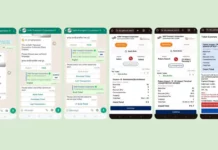You’re having a hard time paying your bills, particularly credit card debt. You’ve heard of debt consolidation, but you’re not sure what it’s about. Before you sign off on the financial strategy, here are questions to ask when you’re considering debt consolidation.
What is Debt Consolidation and How Does it Work?
Let’s start with these fundamental questions. With debt consolidation, you combine multiple debts into a single personal loan, hopefully with a better interest rate than what you’re currently paying in the aggregate. For example, if you have four different unsecured debts – credit card balances or medical bills, for example – that come to $9,000, you could apply for a consolidation loan for that total. If you are approved, you can pay off those debts and repay the new loan with a fixed monthly payment.
How Much Should I Borrow?
You need to determine exactly how much you need from a lender. You want to be able to cover your debts, but you also don’t want extra cash that you’d be tempted to spend on other stuff.
Prior to speaking with a loan specialist, why not run some figures through a debt consolidation calculator, which can tell you roughly how much your monthly payments might be based on various APRs and loan terms.
After you get some idea of what your monthly payments might look like, you’ll be able to approach a lender with the confidence that comes with preparation. See the best consolidated credit services – www.freedomdebtrelief.com.
How Does the Process Go?
A reputable lender will go over the few steps with you and make sure you understand them. Oftentimes, you can just go to the website of the lender you’re interested in and plug in some info, including the amount you wish to borrow. This is called “prequalification,” a process that doesn’t ding your credit since it doesn’t require a hard credit pull. Prequalifying will give you an idea of what you may be eligible for. After that, you can formally apply.
Why Should I Take Out a Loan Instead of Other Options?
There are multiple ways to consolidate debt. Your task is to choose the one that’s right for you. While home equity loans are known for relatively low interest rates and longer repayment terms, for example, you shouldn’t overlook closing costs and fees, reduced equity in your home, and the possibility of foreclosure if you default on payments.
Meanwhile, a balance transfer card can also get you better rates. In fact, what you want is one of those promotional 0%-interest cards onto which you can shift your high-interest credit card debt. Just be sure you’re able to pay off the transferred balances before the promotional period ends and the regular rate kicks in.
With personal loans, you can pay off several balances at once. And as we’ve explained, you usually have a single monthly payment with which to concern yourself, and one with a fixed interest rate. What’s more, a lower combined loan payment gives you more cash availability monthly. Be aware of processing costs known as origination fees, however.
Is My Debt Eligible for Consolidation?
Typically, debt consolidation covers credit card debt, personal loans, and medical bills. There are also loans for secured debt, which is created with a lien. If you’re unclear about the type of debt you have, try this primer on the differences between secured and unsecured loans.
Now you know some questions to ask when considering debt consolidation. Go over your financial situation and see if the approach is right for you. Then you need to decide which type of consolidation best suits you.
The most important thing is to get started today.







